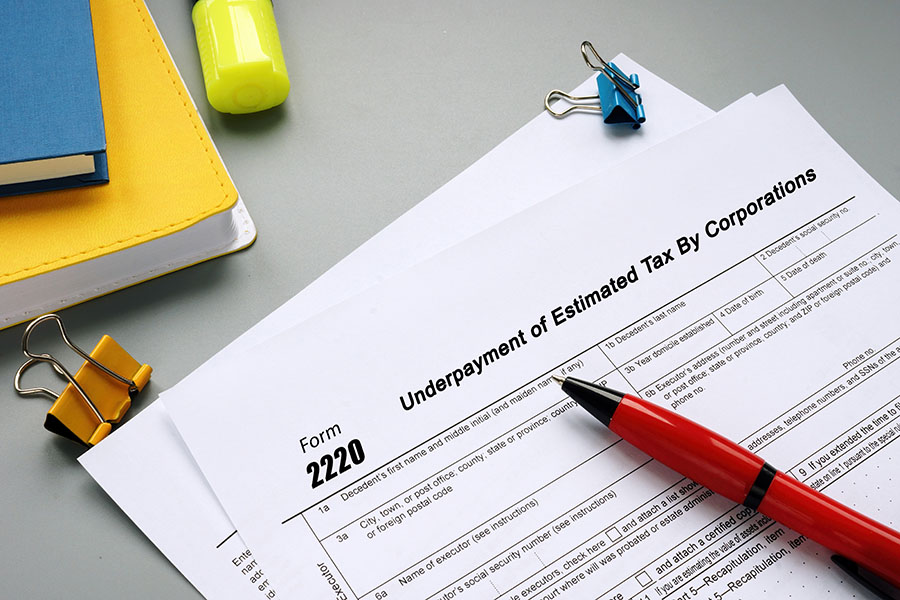
A convertible note is a short-term financial document that allows a business to receive cash in exchange for equity in a company. This agreement is utilized by startups to receive support from angel investors, venture capitalists, or other types of private investors.
Investors provide funding with the assumption that those funds will be repaid or converted into equity at a later date. The agreement allows a business to receive quick access to funds and offers a structure similar to a traditional loan. However, unlike a loan that has to be repaid in cash, a convertible note is satisfied by giving the investor ownership interest in the company.
Key Takeaways:
- Convertible notes are an ideal option for startups that need funding quickly and have high growth potential.
- Before valuation, a company can issue a convertible note to raise venture capital since valuation can be a lengthy process.
- Ownership interest usually comes in the form of preferred shares of the company. The exact time frames and calculation methods are determined by the specific terms in the note.
Essentially, a convertible note allows a company to partake in short-term debt financing, where investors can fund a business and receive equity at a later date. When drafting a convertible note, you’ll need to discuss the terms and clauses with your investors before an agreement is reached. Once signed, the note is in place until a conversion event is triggered and the details of the note are acted upon.
There are a few factors to consider when determining the details of the note, which can include the following:
- Interest rate: Like a traditional loan, you’ll need to determine an applicable interest rate. Some investors may require a minimum return on investment in exchange for funding. For instance, a 10% interest rate on an investment of $100,000 allows the investor to convert it to $110,000 after one year.
- Discount rate: This allows investors to purchase shares at a reduced price when compared to their face value. For example, if the shares in your startup business are valued at $1 per share, a 10% discount rate would allow the investor to purchase them at 90 cents per share.
- Valuation cap: This is the maximum value in which a convertible note can convert into equity. As demonstrated in the examples below, it is beneficial to the investor because it helps avoid interest from being diluted and can allow them to obtain more shares and equity if your startup business performs well.
- Maturity date: This is the specified date for when a startup receives a valuation and the investor can convert the note into equity.
- Pre-money and post-money: The note can be set up to convert either pre- or post-money. This means that the note can be converted before the next funding round when new investors obtain equity, or post-money, where the note can convert after the next funding round and dilute the stakes of the current investors.
Examples of Convertible Note Calculations
With the convertible note terms mentioned above, you can calculate the cost of funding—which is how much the convertible note will cost you once you receive a business valuation. In the examples, we assume a $100,000 convertible note on a business that receives a valuation of $2 million, or $1 per share, after one year.
Click on the terms below to learn how to calculate the cost of funding based on the different terms.
10% of the initial investment of $100,000 is $10,000. In total, the cost of funding equates to $110,000.
Take $100,000 and divide it by 90 cents to get a cost of funding of $111,111. We arrive here by taking the per-share cost of $1 and factoring in the 10% discount rate that allows the investor to purchase shares at 90 cents.
Take the valuation cap of $1 million and divide it by the current valuation of $2 million to arrive at a cost of 50 cents per share. Since this is half the cost of the valuation of $1 per share, we take the $100,000 convertible note and divide it by 50 cents to arrive at a cost of funding of $200,000.
Take the valuation cap of $1 million and divide it by the current valuation of $2 million to arrive at a cost of 50 cents per share. Since this is half the cost of the valuation of $1 per share, we take the $100,000 convertible note and divide it by 50 cents to arrive at $200,000. Then, add the 10% interest rate to arrive at a cost of funding of $220,000.
Take the valuation cap of $1 million and divide it by the current valuation of $2 million to arrive at a cost of 50 cents per share. With a 10% discount, that figure becomes 45 cents per share. Now take the $100,000 convertible note and divide it by 45 cents to arrive at a cost of funding of $222,222.
Take the valuation cap of $1 million and divide it by the current valuation of $2 million to arrive at a cost of 50 cents per share. Since this is half the cost of the valuation of $1 per share, we take the $100,000 convertible note and divide it by 50 cents to arrive at $200,000. The 10% interest rate gives us $20,000, which is added to the previously calculated discount and cap figure of $222,222, to give us a final cost of funding of $242,222.
Pros & Cons of Convertible Notes
Who a Convertible Note Is Right For
A convertible note can be a viable option for a variety of business owners, particularly startups needing quick access to financing to support the scale of their operations. A convertible note can offer a flexible financing opportunity and may also benefit your business if you:
- Are a low revenue company: Convertible notes typically do not require repayment for at least 1 to 2 years, so you can focus more on using the funds to develop your product or service, with less pressure on generating enough revenue to satisfy monthly payments on a traditional loan.
- Want to be the first to market: Funding obtained from a convertible note can be done much faster than a traditional loan. You can use a convertible note if you have an innovative product or service and need cash to develop it quickly to gain market share.
- Don’t have a business valuation: A business valuation largely determines how much capital you can raise in funding rounds, such as Series A, B, and C. Valuations are determined by several factors, such as a market risk analysis and track record of your company’s management. If there is not enough information to arrive at a valuation, investors can provide you with funding via a convertible note in exchange for equity.
- Want to develop a minimum viable product (MVP): Developing an MVP can be one method that can be used as a proof of concept to gain confidence from more investors. However, if you are a first-time business owner with no track record of success, you may have trouble finding an investor.
- Seek to prioritize product development in the short term: While it will eventually be necessary to generate revenue for yourself and other stakeholders in the company, this can be a good choice if you believe that focusing on product development in the short term will yield a substantially greater amount of returns in the long run.
- Are already planning for your seed or Series A funding rounds: Plan ahead and speak with other investors about the possibility of funding once your company hits certain milestones. If your company does not raise a funding round before the convertible note’s maturity date, you could be required to repay the note if the noteholder does not agree to give you an extension.
Where to Get a Convertible Note
A convertible note can be issued from a variety of investors, most commonly angel investors or other venture capitalists. You can get angel funding from your existing network or various online directories that list angel investors.
- StartEngine: A popular equity crowdfunding source for businesses based in the U.S.
- FundersClub: Since its founding in 2012, the company has helped over 350-plus startups with a total of over $180 million in funding.
- Angel Capital Association: An organization that allows you to find angel groups and platforms by region.
- Angel Investment Network: An online directory that connects investors and businesses in the US with various investment opportunities.
It’s worth consulting a legal professional when drafting a convertible note to ensure you cover all your bases—whether it be to help negotiate terms, collect documentation, or answer any questions you have about the process.
Alternatives to a Convertible Note
If you think a convertible note may not be the best option to secure funding for your business, there are a few alternative funding options for startups that can provide financing without having to give up equity in your company. Consider the following:
- Startup loans: Startup business loans cater to newer businesses that might have difficulty getting loans from banks. They have more flexible requirements for revenue, credit score, and time in business. You can also read our guide on how to get a small business loan.
- Small business grants: Grants can provide your business with cash with no repayment required. However, this can be a difficult source of funding to obtain due to limited availability and competition from other businesses. For options, check out our top-recommended small business grants.
- Funding from friends and family: Raising money from family and friends to fund your business can give you more flexibility for interest rates, repayment methods, and other loan terms. They may even be willing to gift you some funds.
- Business credit cards: Using a business credit card can provide you with quick access to funds that can be repaid over time and used on an as-needed basis to finance business expenses. See our roundup of the best business credit cards for startups for a place to start.
- Business line of credit: As a revolving credit facility, a small business line of credit can be used to finance various business expenses by requesting a draw on the line as you need it, and the balance can be repaid over time.
Two additional options similar to a convertible note are a Simple Agreement for Future Equity (SAFE) and Keep It Simple Security (KISS).
- A SAFE is different from a convertible note because it has no maturity date, so it may never convert to equity.
- A KISS document can provide a debt version which has an interest rate and maturity date, or an equity version, which has neither.
Frequently Asked Questions (FAQs)
Convertible notes have a variety of pros applicable to both a business and its investors, but the main ones are that they are flexible, relatively simple to document, and generally low-risk.
It depends on the agreement; however; typically 18 to 36 months is standard.
Yes, there may be some disadvantages to utilizing a convertible note, such as ownership dilution, limited control, and default risk.
Bottom Line
Now that you know what a convertible note is and how a convertible note works, you can determine if it’s worth using for your business investments. If you’re looking for a funding source outside of a traditional loan, a convertible note is a viable option that requires no monthly payments and provides flexibility to both you and the investor.
That said, you’ll need to find an angel investor, venture capitalist, or other investor willing to utilize a convertible note as part of your agreement. Before diving in, ensure you’ve explored all financing options and weighed the pros and cons of using a convertible note.




